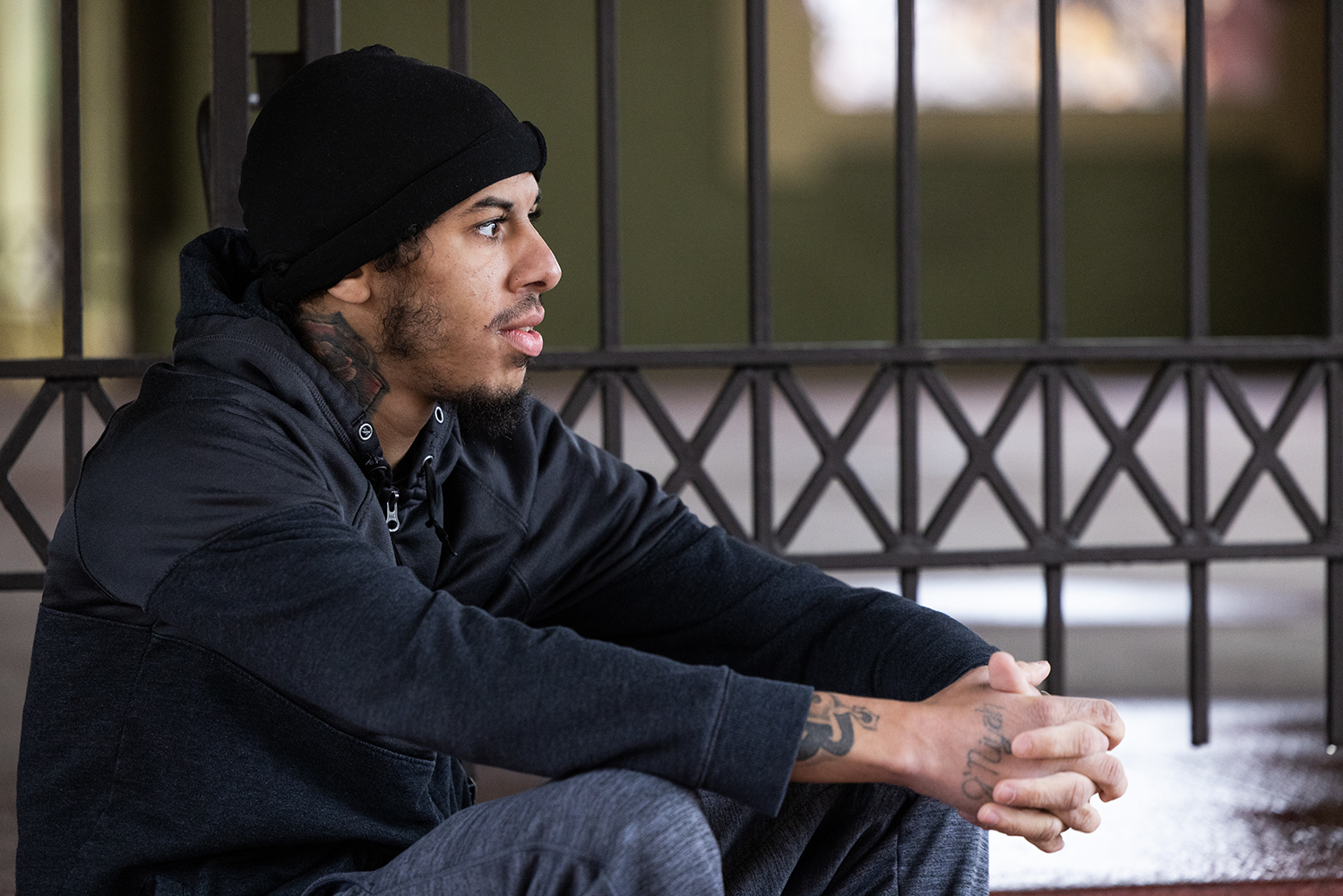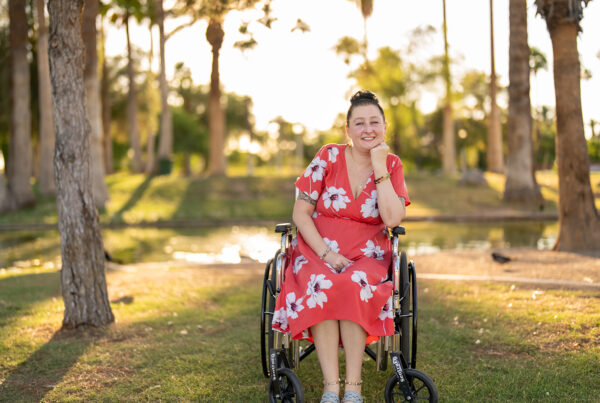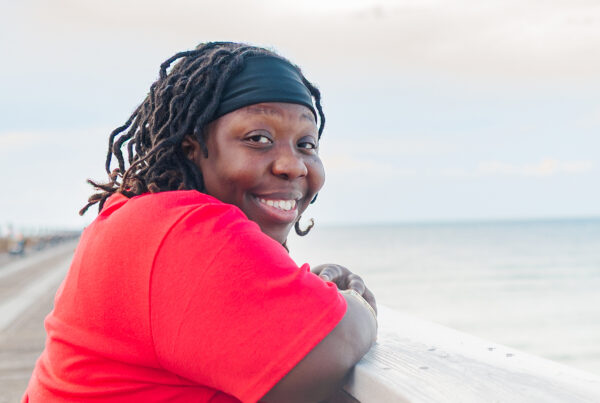Jerod had a period in his past, before he became a father, that was marked by incarceration. His circumstances are not that different from those of the 50% of Americans who, at some point in their lives, were either incarcerated themselves or had a family member incarcerated. About five years ago, Jerod was charged and convicted of a nonviolent offense and was put on probation, a type of sentence that is understood by most to be an alternative to incarceration because the person is released from custody – but they are still subject to supervision. Although on probation, Jerod’s freedom let him put his life together. He earned a good living working in a bakery warehouse. He started a new relationship. His partner was soon pregnant with twins.
One night Jerod and his partner had a bad fight and the police were called. Officers discovered a firearm on the premises, which they claimed belonged to Jerod. The simple allegation that he possessed a weapon violated his probation and he was immediately sent to prison and forced to serve 18 months. In other words, Jerod was imprisoned, and served the entirety of his sentence, for an alleged offense that he had yet to stand trial for to determine his guilt or innocence. In fact, when his case for the firearm possession charge finally went to trial – after he had served 18 months – his charge was dismissed.
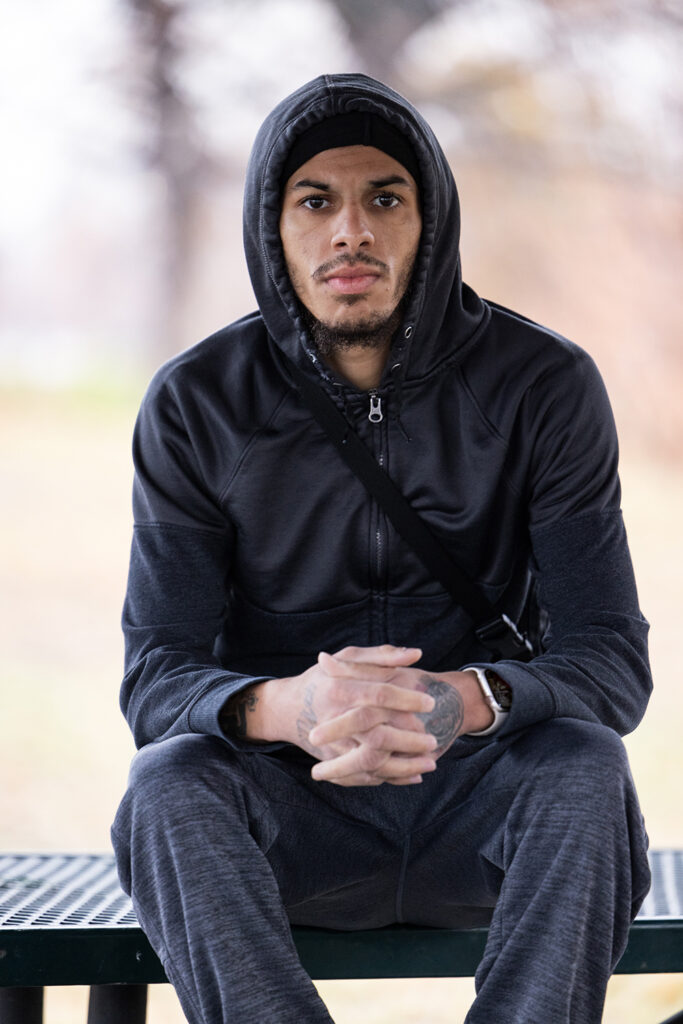
People on probation are required to comply with dozens of rules for years on end, which commonly include work requirements, regular check-ins, travel restrictions, and mandatory drug and alcohol testing. Sometimes people are also required to adhere to egregious terms, such as restricted cell phone or social media usage. If they are alleged to have failed to adhere to these conditions, probation can be revoked and the person can be incarcerated.
Some experts argue that the overuse of probation and community supervision has fueled mass incarceration, instead of curtailing it. Over the past decade, the number of people on probation and other forms of community supervision has soared. In 2019, one in 73 American adults in the United States was on probation. A Human Rights Watch report published in 2020 found that most people accused of violating probation were incarcerated for minor technical violations of the conditions of their probation, not for committing a new crime.
After Jerod had finished serving his time in prison, he still didn’t get to see his kids. He was transferred immediately from prison to the St. Louis County Jail, so he could then face the charges of illegally possessing a firearm. As that new case proceeded, Jerod continued to remain incarcerated, but this time solely because a $3,500 bond was set against him that he couldn’t afford. The ride from prison to jail was his only taste of freedom. “It was a happy, nice little two-hour drive,” he said.
When Jerod finished serving 18 months in prison, his case for firearm possession finally went to trial. Four months later, those charges were dismissed. That the case that landed him in prison for 18 months was ultimately dismissed makes Jerod’s initial incarceration so needless and unnecessary, especially when considering the adverse impact it had on him and his family. Not only did Jerod miss the birth of his twins, but he was also deprived of the opportunity to bond with his newborns and experience being a new father. The fact that a simple allegation ripped these moments away from him demonstrates not just the failures of the criminal justice system, but also the ways in which it is broken. This type of circumstance – where someone is arrested and incarcerated, only to later have their case dismissed – is unfortunately common across the United States. The Bail Project’s clients have their cases dismissed 33% of the time; in some jurisdictions, like Charlotte, NC, case dismissal rates are extremely high, with cases for clients of The Bail Project dismissed 66% of the time.
“I missed a lot of my kids’ lives,” Jerod said. “A year and half.”
Jerod spent five days behind bars after he was transferred to St. Louis County Jail to deal with the weapons charge when The Bail Project learned about Jerod’s situation and stepped in to pay his bail. By this point, Jerod had spent a total of 20 months incarcerated and separated from his family. After he was released on bail, Jerod felt like he could start to get his life under control again. He finally got to see his twins, who were 10 months old. It also meant that Jerod was able to have more access to his lawyer and a better shot at fighting his case. Without proper resources and support – such as transportation, stable housing, employment, and health services – it can be difficult to expect anyone already struggling with an array of problems to overcome them alone. Not only did The Bail Project help Jerod get out of jail, but it also assisted him by providing rides to court.
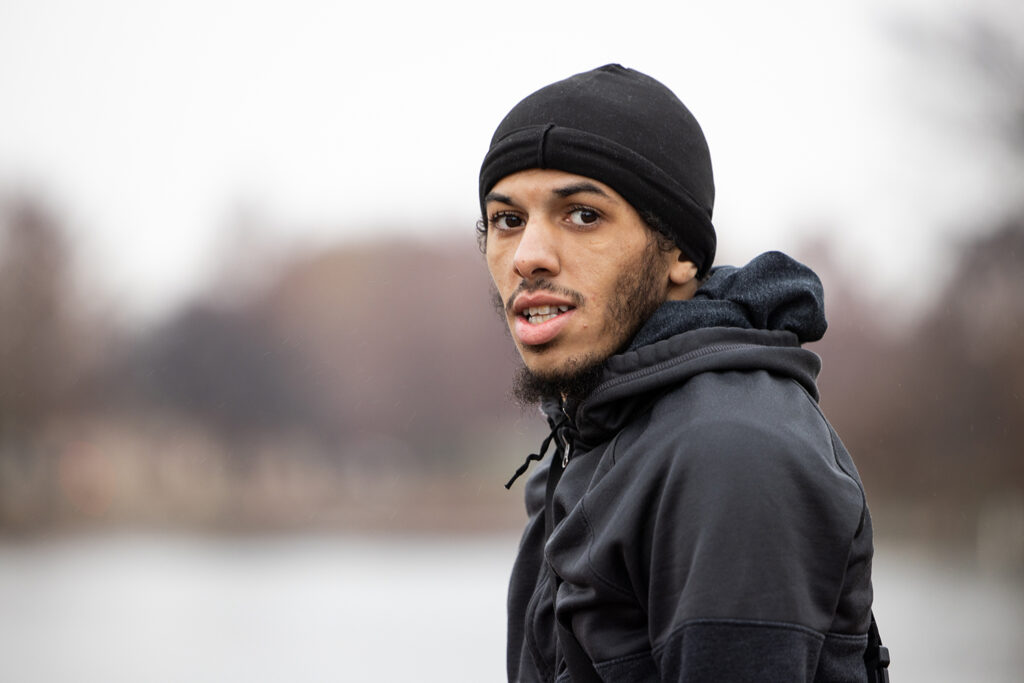
These simple supports – court notifications, travel assistance, referrals to voluntary supportive services to address unmet needs – are broadly lacking in courtrooms across the country. In fact, most courts are too under-resourced to afford enough public defenders, let alone supportive services that can help people during the pretrial part of their case and, hopefully, avoid future justice system involvement altogether. This is why community-based pretrial support services like the ones provided by The Bail Project proved to be an invaluable asset to Jerod and his family.
“Now, my twins, I see them every week. I love spending time with them, it makes them so happy,” Jerod said. “I was blessed, I’m glad I made it out and I never want to be in jail again. I’ve got kids to raise.”
He is expecting a third child in a few months.
Thank you for reading. The Bail Project is a 501(c)(3) nonprofit organization that is only able to provide direct services and sustain systems change work through donations from people like you. If you found value in this article, please consider supporting our work today.







